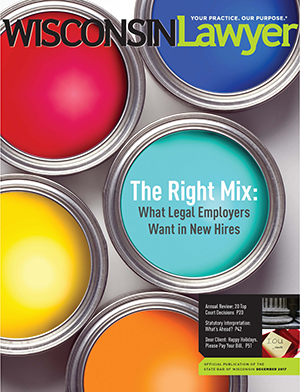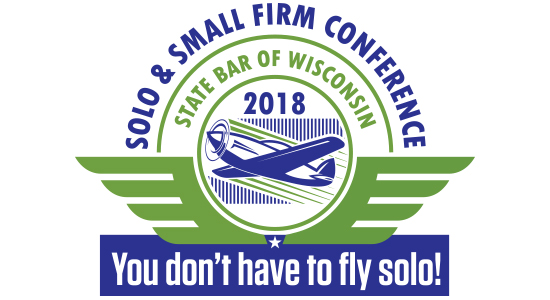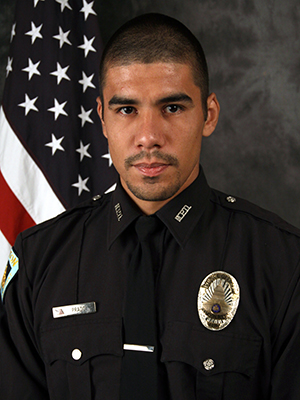 Things That Make a New Lawyer Successful
Things That Make a New Lawyer Successful
In “The Right Mix: What Legal Employers Want in New Hires” (Wisconsin Lawyer, December 2017), Dianne Molvig reported on the findings of a first-of-its-kind study, Educating Tomorrow’s Lawyers, an initiative of the Institute for the Advancement of the American Legal System. More than 24,000 lawyers from all 50 states, including 500 from Wisconsin, answered the question: “What makes a new lawyer successful?”
The traits and skills legal employers say job candidates need to stand out in the very competitive legal marketplace may test your assumptions. A reader posted a comment.
Reader: Great article – thanks for sharing this survey. I’ll definitely be sharing it with my Advanced Legal Research students.
Bonnie Shucha
U.W. Law School, Madison
We Want to Hear from You! Submit a Letter to the Editor
Wisconsin Lawyer provides a forum for members to express ideas, concerns, and opinions on law-related subjects. Send comments to wislawyer@wisbar.org (include “Letters” in the subject line), or mail to Wisconsin Lawyer “Letters,” P.O. Box 7158, Madison, WI 53707-7158. Limit to 500 words. Writing guidelines available.
Connect With Us Online. Post comments to articles
online, and find us on
Facebook, Twitter, and LinkedIn.
Free, Open Elist Wanted for Solo and Small Firm Lawyers

It was great to read about all the Legal Innovators in the November 2017 issue of Wisconsin Lawyer. I especially enjoyed reading about Attorney William Hess and the Lifetime Innovator award he received.
I haven’t met Attorney Hess but have certainly benefited from innovations he has championed, such as the Practice411 portal and the practice management advisor. If you ever received tech tips from Nerino Petro or Tison Rhine, you can appreciate Hess’s contributions.
Hess’s efforts have increased services that assist solo and small firms. The examples above were thoughtfully developed as no-fee benefits for State Bar members. In that same spirit, I believe there is a need for another service for solo and small firm attorneys: an open elist available for no cost or at cost.
For years, a solo and small practice elist was provided as a free member resource by the Solo Small Firm & General Practice Section. The elist leveraged email communication to allow solo and small firm practitioners, especially new attorneys, to reach out to colleagues for their expertise. This was a very useful portal that in turn created value for State Bar members and their clients.
Some time back, the elist was closed and the resource made available only to paying members of the section. To be clear, this was a valid decision by the section and its democratically elected board. However, this is a policy that needs to be reversed. Or an alternative elist needs to be established for State Bar members looking to request assistance from colleagues or to offer assistance.
An elist could be considered a member benefit, one that must be charged a fee to access. However, the real value is not the portal but rather the exchange of ideas and insights, freely given by colleagues. Restricting an elist might entice some members to pay for access, but I know several members rejected that approach. I suspect the restriction had the effect of diminishing an open community that shared knowledge. Further, the restriction may once again limit or isolate solo and small-practice members, especially those in rural communities. These effects are the exact opposite of what we should want as a professional association. We create member value by expanding members’ knowledge and abilities to serve clients, not by taking an open forum and putting it behind a pay wall.
I am aware that not all State Bar services can be provided for free. However, an elist is a low-cost option, one that takes little staff time to maintain and a nominal per-member cost that decreases as the number of users increase. I would urge the section leadership to reassess its decision to close the elist. If the elist is not reopened (and that is the section board’s prerogative), then members should explore establishing a separate elist. That separate list might not be completely free but the cost will be minimal and could even be subsidized via sponsorship from firms or vendors.
Nilesh P. Patel
Mahadev Law Group LLC, New York, NY
Response: Thank you, Nilesh, for your feedback on the Solo Small Firm & General Practice Section’s elist. We know you for your willingness to share, via the elist and other means, your experience and knowledge with your fellow solo and small-firm attorneys.
As representatives for this section, we’d like to share some of the thinking behind the board’s unanimous decision to limit elist access to section members.
The section’s goal is to be the voice for solo and small-firm lawyers. The section has purposefully kept its dues low so that cost is not a barrier to participation. We believe the wisdom found on the elist, alone, is worth $25. It certainly has been for each of us.
The section’s elist was the only elist out of 20 State Bar sections that had an open elist. When one joins most professional organizations, one pays to belong and receive the benefit it offers. For example, your $25 helps sponsor the annual Wisconsin Solo and Small Firm Conference in the fall. This sponsorship reduces the cost of registration for all attendees. It also provided five scholarships to solo attorneys who find the registration cost a significant barrier to attending the conference. Through the conference and the elist, the section provides solo attorneys ways of communicating with and getting to know other solo and small-firm attorneys throughout the state.
Perhaps most importantly, the section is your voice and promotes your interests into the State Bar’s often complex policy and decision making. We need your support to make sure the solo attorney community is heard and remains strong. Without the financial support of our members, we could not offer this support focused solely to our solo and small-firm community.
So, the issue is not just about the elist, it’s also about this section’s long-term financial health and its ability to support the evolving needs of solo and small-firm lawyers statewide. Our section’s board is made up of attorneys scattered geographically statewide, and at least half of our board members practice and reside outside of Madison and Milwaukee. The section board members, all solo or small-firm attorneys, are volunteers. We each pay our $25 section dues, and volunteer our time on behalf of the solo and small-firm community. It was a unanimous decision by the 16 volunteer attorneys who make up the board.
In closing, thank you again for your feedback. It was not a decision made lightly. And as an aside, we welcome new board members with the time and energy to volunteer and support our solo and small-firm community and profession. We welcome that input into the section’s often difficult decisions it must make.
Terry Dunst, Chair
Kathy Brost, Immediate Past Chair
Kathryn Knowlton, Chair-elect
Solo Small Firm & General Practice Section Board
Editor’s Note: The Practice411 elist is free and open to every State Bar member. The elist is sponsored by the State Bar’s Law Office Management Assistance Program (Practice411). Practice411 assists lawyers to improve their practice efficiencies, reduce risk, use technology, and more; it provides a wealth of practice management resources.
For more information, visit Practice411 on WisBar.org or contact practice management advisor Christopher Shattuck, cshattuck@wisbar.org, (800) 444-9404, ext. 6012, or (608) 250-6012.
 The Concept of Big Hunger in America is Laughable
The Concept of Big Hunger in America is Laughable
I strongly object to the publication of a book review in the November 2017 issue of our mandatory bar journal by Emily L.R. Wilson concerning the book Big Hunger.
The book review starts out with a preposterous proposal, “In America, ‘hunger’ as a societal issue is at the forefront of social consciousness.” That statement is laughably false. Our consciousness might be raised by the epidemic of diabetes, juvenile obesity, chemical addictions, and crime. America is awash with food stamps, food pantries, community holiday dinners, supermarket shelves groaning with reasonably priced foods begging to be purchased by a prosperous public. This book and its reviewer are radical left outliers that any minimally sensible person would ignore.
We members of the State Bar of Wisconsin are a captive audience. We either support this magazine or we are barred from our chosen profession.
Relative to those proletarian paradises in Venezuela, Zimbabwe, North Korea, and Cuba, the concept of big hunger in America is laughable. Including this kind of ultra-left-wing drivel in the Wisconsin Lawyer degrades our professional journal.
Harry Griswold
Harry R. Griswold Law Office, West Salem
Do Lawyers Need Offices?

We hear a lot about the pluses and minuses of virtual law offices. Lower overhead (plus). Loss of serendipity (minus). The State Bar of Wisconsin shared an article from The Atlantic.com, “Do Lawyers Even Need Offices Anymore?” on Facebook. The article noted that more and more “virtual” firms are letting attorneys work from home. Their lives are more flexible, but workplace culture might be taking a hit.
The State Bar asked readers to share their insights. Two obliged.
Reader: I’ve done both and the article is on point. The biggest drawback about working from home is not having colleagues to bounce stuff off of throughout the day. A close second is always having my work staring at me. On the other hand, the benefits are glorious. Starting the clock when I roll out of bed, having everything at my disposal for comfortable or productive or reinvigorating breaks, and the cost savings. All wonderful. Of course, everyone who has clients needs a physical space to meet with them in, whether it’s a colleague’s place or an occasional rental.
Anthony Jurek
The Law Office of Anthony Jurek, Middleton
Reader: Renting an office gives me a place that is dedicated to work. I walk in to the office, and no matter how I’m feeling, I’m ready to work, and my time is spent almost exclusively on work. I leave the office and, no matter how I’m feeling, I’m ready to stop working, and I almost never do any work outside the office. (Written while at the office, proving that there are exceptions.)
Sam Wayne
Attorney Sam Wayne SC, Madison
 The Law Overlays Everything Police Officers Do
The Law Overlays Everything Police Officers Do
In “The Why and the How of Being a Lawyer/Police Officer” (Wisconsin Lawyer, November 2017), lawyer and Madison police officer Jared Prado wrote, “The law overlays everything that police officers do, but we officers are guided by our own moral compasses more often than we are by rational legal analysis.”
A nonlawyer reader posted a comment to the article on WisBar.org.
Reader: I have always admired Officer Jared Prado. His busy schedule did not stop him from volunteering and doing pro bono work. He has been active at The Immigrant Justice Clinic, CILC, Dodge County Detention Center, and Street Law. He also volunteered at Karnes Residential Center in Texas assisting migrant mothers and their children. His work and his ethics are inspiring.
Tati Shira
